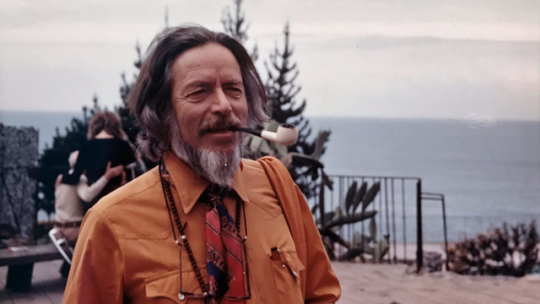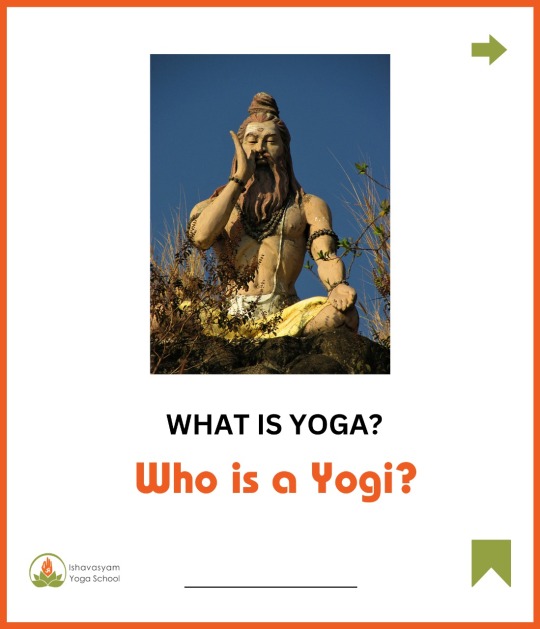#BeyondTheEgo
Explore tagged Tumblr posts
Text

no-mind. In that state, you feel you own presence with such intensity and such joy that all thinking, all emotions, your physical body, as well as the whole external world become relatively insignificant in comparison to it. And yet this is not a selfish but a selfless state. It takes you beyond what you previously thought of as "your self." That presence is essentially you and at the same time inconceivably greater than you. ⎯ 𝘛𝘩𝘦 𝘗𝘰𝘸𝘦𝘳 𝘰𝘧 𝘕𝘰𝘸, Eckhart Tolle, p.20
#eckharttolle#thepowerofnow#nomind#purepresence#spiritualawakening#selflessstate#egoisillusion#innerbeing#beyondself#presencepower#stillness#awareness#consciousnessshift#deepmeditation#nowmoment#awakeningquotes#intensepresence#transcendence#selfrealization#nonduality#mindfulness#innerpeace#spiritualtruth#trueessence#divinepresence#youarepresence#observerstate#beingnotdoing#beyondtheego#silentawareness
1 note
·
View note
Text
"Zen is a liberation from time. For if we open our eyes and see clearly, it becomes obvious that there is no other time than this instant, and that the past and the future are abstractions without any concrete reality."

Alan Wilson Watts was a British and American writer, speaker, and self-styled "philosophical entertainer", known for interpreting and popularising Buddhist, Taoist, and Hindu philosophy for a Western audience.
Born: 6 January 1915, Chislehurst
Died: 16 November 1973 (age 58 years)
Bridge Between East and West Alan Watts was pivotal in introducing and interpreting Eastern philosophies — especially Zen Buddhism, Taoism, and Hinduism — for Western audiences in the mid-20th century, making abstract concepts deeply relatable.
Ordained Episcopal Priest Surprisingly to some, Watts was once an Episcopal priest. He left the clergy in the 1950s, believing the church was too rigid to accommodate the spiritual fluidity he found in Eastern traditions.
Prolific Author and Speaker He wrote over 25 books and gave countless lectures, many of which are still widely shared today. Notable works include The Way of Zen, The Wisdom of Insecurity, and Become What You Are.
Explored Psychedelics and Consciousness Like many thinkers of his era, Watts experimented with psychedelics as tools for expanding consciousness, though he never made them central to his teachings — his focus was always more on awareness and perception.
Believed Life Is Not a Journey One of his core teachings was that life isn’t a path to somewhere else — it’s a dance or music, meant to be lived and experienced moment by moment, not “arrived at.”
#AlanWatts#PhilosophicalWisdom#EasternPhilosophy#ZenMaster#Taoism#TheWayOfZen#SpiritualAwakening#ModernMystic#NonDuality#ConsciousnessExplorer#MindfulnessTeacher#BritishPhilosopher#BeyondTheEgo#PresentMoment#SpiritualFreedom#InnerJourney#LSDLectures#ExistentialWisdom#WattsWaves#LifeIsNow
0 notes
Text
Ego as the Illusion: Shiva’s Sutras on the Real Self

The Mirage of the Ego: A Vasugupta Perspective
In Kashmiri Shaivism, Vasugupta revealed a truth that shatters all illusions—the ego is not real. It is merely a construct, a mirage that tricks us into believing in separateness. The Shiva Sutras emphasize that the Real Self is beyond identity, beyond limitations, and beyond the false structures we build around ourselves. But how do we realize this? And what happens when we do?
Imagine a wave believing it is separate from the ocean. It rises, it falls, and in its limited awareness, it fears its end. But the moment it realizes it is the ocean, the fear dissolves, and it embraces its true infinite nature. This is the essence of Vasugupta’s teachings—our ego makes us believe we are waves, but in truth, we are the boundless ocean.
The Ego’s Trick: The Grand Illusion of "I"
The ego survives by crafting identities: I am successful, I am struggling, I am important, I am insignificant. These labels keep us bound, forcing us to seek external validation. But Vasugupta urges us to see through the illusion. He says the Self is not the body, not the mind, and not even the thinker behind thoughts. It is pure awareness.
The Shiva Sutras state:
"Jnanam bandhah" (Knowledge itself is bondage.)
How paradoxical! Isn’t knowledge meant to liberate? Vasugupta challenges this idea. When we define ourselves by what we know—our experiences, memories, and achievements—we imprison ourselves within a mental framework. True freedom comes not from adding more knowledge but from dissolving the illusion that there is a separate "I" to begin with.
Dissolving the Ego: The Realization of Oneness
When we step beyond the ego, we do not lose ourselves—we rediscover the infinite Self. In Kashmiri Shaivism, this realization is called Pratyabhijna (Recognition). It is not about attaining something new but recognizing what has always been there.
A person may wear a mask for so long that they forget their real face. Vasugupta reminds us that the Real Self was never lost, only obscured. The moment we recognize it, we return home.
The Practical Toolkit: Transcending the Illusion of Ego
How do we move beyond ego in daily life? Here is a practical approach inspired by Vasugupta:
1. The Mirror Practice: Question Your Identity
Every morning, look into a mirror and ask:
Who am I without my name?
Who am I beyond my achievements?
Who am I beyond my failures?
The mind will struggle to answer because these labels are constructs. Sit in that silence and feel the presence that remains. That is the Real You.
2. The Ocean Meditation: Dissolving into the Infinite
Close your eyes and visualize yourself as a wave in a vast ocean.
Feel yourself rising and falling with life's experiences.
Now dissolve the wave into the ocean. Feel the expansiveness, the unbroken unity.
Repeat the affirmation: "I am not a wave. I am the ocean."
3. Self-Inquiry Journaling: Breaking the Chains of "I"
Write down three moments when your ego felt hurt or triggered. Then ask:
Was it really "me" who was hurt, or just my identity?
Who is the "I" that is observing this hurt?
This inquiry will begin to loosen the ego's grip.
4. Act Without Ownership: Karma Yoga in Action
Perform a daily task without claiming ownership. Whether it is working, cooking, or speaking, mentally affirm: "This is happening through me, not by me."
Observe how this shift removes stress and attachment to results.
5. Shiva Drishti: Seeing the Divine Everywhere
When you look at another person, see them not as a separate being but as an extension of the same consciousness.
Whisper internally: "Shivoham" (I am Shiva), "Shivoham" (You are Shiva).
This perspective dissolves the barriers of "I" and "You."
The Final Leap Beyond "I"
Vasugupta’s teachings are not philosophical riddles; they are direct paths to liberation. The ego is not something to fight or suppress; it is an illusion to see through. When we realize that we were never the separate wave but the entire ocean, we step into a life of boundless freedom, peace, and power.
So, are you ready to shatter the illusion? The Real You is waiting—and it has been there all along.
#ShivaSutras#EgoIllusion#VasuguptaWisdom#KashmiriShaivism#SpiritualAwakening#BeyondTheEgo#ShivaConsciousness#NonDualityTruth#InnerLiberation#DivineAwakening#TranscendTheSelf#EgoDeathJourney#SacredWisdom#ShivaWithin#BreakTheIllusion
0 notes
Text
Who is a Yogi?
In today’s world, we often see “Yogi” used as a title before names. But do we truly understand its depth?
A Yogi is not just someone who practices postures or wears a spiritual identity—it is one who has transcended ego and no longer sees separation between oneself and the universe.
True Yogis experience oneness with all beings, every creature, and all of existence. They no longer see the world as me and them—but as a reflection of their own self.
A Yogi is not bound by religion, caste, or nationality. They live in awareness, beyond desires and attachments, walking the path of truth, compassion, and inner stillness.
Through discipline, practice, and deep self-inquiry, one moves closer to this state—not just in words, but in experience.
This is the path of Yoga. This is the essence of a Yogi. ✨
Follow @ishavasyamyogaschool for more 🙏🏻
https://ishavasyamyogaschool.com/index.php
.
.
.
.
#IshavasyamYogaSchool #YogaWisdom #WhatIsYoga #WhoIsAYogi #SpiritualJourney #UnionWithDivine #YogaPhilosophy #Oneness #TrueYoga #PatanjaliYoga #YogicWisdom #BeyondTheEgo #HigherConsciousness #YogaForTheSoul





#ishavasyamyogaschool#yoga#india#rishikesh#yogalife#fitness#inspiration#insta#yogainspiration#yogapractice#knowledgeable#knowledge
0 notes
Photo

I just finished reading this book, and although there was some of it that I didn’t necessarily fully resonate with, it was a wonderful read and offered great insight into the ego and how to peacefully move beyond it.
0 notes
Text

Identification with your mind creates an opaque screen of concepts, labels, images, words, judgements, and definitions that blocks all true relationship. It comes between you and yourself, between you and your fellow man and woman, between you and nature, between you and God. It is screen of thought that creates the illusion of separateness, the illusion that there is you 𝘢𝘯𝘥 a totally separate "other." You can forget the essential fact that, underneath the level of physical appearances and separate forms, you are one with all that 𝘪𝘴.
⎯ 𝘛𝘩𝘦 𝘗𝘰𝘸𝘦𝘳 𝘰𝘧 𝘕𝘰𝘸, Eckhart Tolle, p.15
#eckharttolle#thepowerofnow#nonduality#spiritualawakening#consciousness#mindfulness#presentmoment#innerpeace#oneness#ego#egoillusion#spiritualgrowth#awareness#selfrealization#awakeningquotes#spiritualquotes#thoughts#mentalclarity#meditation#stillnessspeaks#spiritualjourney#transcendthought#beherenow#spiritualinsight#truthseeker#collectiveconsciousness#divineconnection#truthwithin#soulexpansion#beyondtheego
1 note
·
View note